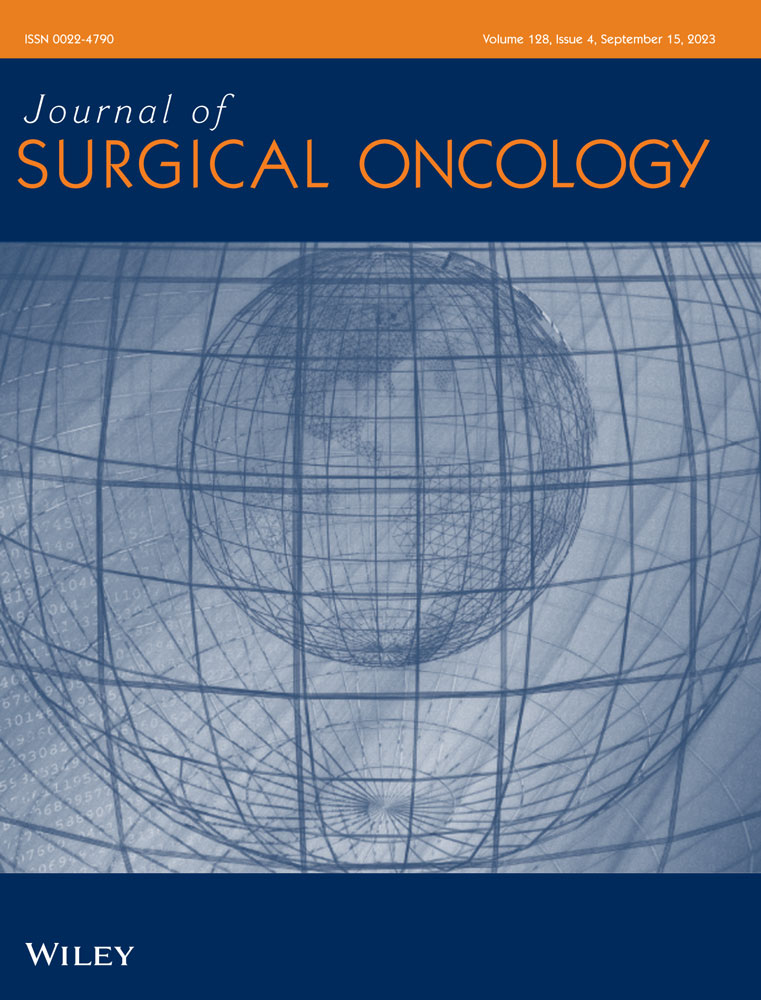Clinicopathological features and survival of rare primary pulmonary lymphoepithelial carcinoma: A cohort from a single center
Kai Nie, GuangYu Tao and Lin Zhu contributed equally to this work.
Abstract
Background
Primary pulmonary lymphoepithelial carcinoma (PLEC) is a rare subtype of nonsmall cell lung cancer. This study aimed to investigate the clinicopathological and prognostic characteristics of resected primary PLEC.
Materials and Methods
In this retrospective study, 95 consecutive patients with primary PLEC, who received radical surgical resection treatment, were examined from October 2009 to January 2022. The clinicopathological features and their association with survival outcomes were analyzed.
Results
Primary PLEC predominated in relatively younger patients and nonsmokers, who lacked driver mutations and were always positive for immunohistochemical markers of the squamous cell lineage. Further, 21.1% of patients had abnormally elevated preoperative serum marker fragments of cytokeratin 19 (Cyfra21-1). The median follow-up time was 43.5 months. The 1-, 3-, and 5-year recurrence-free survival (RFS) rates were 96.5%, 81.8%, and 64.3%, respectively. The median RFS time was not reached. Cox univariate survival analysis showed that patients with positive lymph nodes had significantly worse RFS than those with negative ones (p = 0.017). The patients with open surgery experienced significantly worse RFS than those with video-assisted thoracoscopic surgery (p = 0.038). The multivariate survival analysis confirmed that only lymph node involvement (hazard ratio: 2.769; 95% confidence interval: 1.171–6.548, p = 0.020) was an independent prognostic factor.
Conclusions
Primary PLEC is a rare type of lung cancer with a favorable outcome, more common in young and nonsmoking Asian populations. Driver gene mutations are rare. Regional lymph node metastasis is an independent prognostic factor for RFS after radical surgical resection.
CONFLICTS OF INTEREST STATEMENT
The authors declare no conflicts of interest.
Open Research
DATA AVAILABILITY STATEMENT
The data that support the findings of this study are available on request from the corresponding author. The data are not publicly available due to privacy or ethical restrictions.




